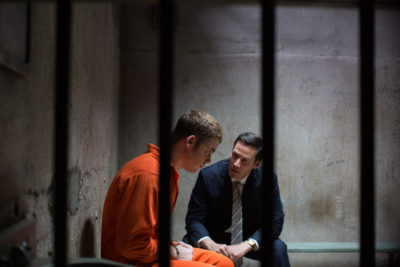
Gabriel Basso & Keanu Reeves in The Whole Truth
In The Whole Truth, Mike Lassiter (Gabriel Basso) is charged with murdering the wealthy Boone Lassiter (Jim Belushi), his father. Family friend and defense attorney Richard Ramsay (Keanu Reeves) takes on this personal case when he swears to his widowed friend, Loretta Lassiter (Renée Zellweger), that he will keep her son Mike out of prison. Together with new colleague Janelle (Gugu Mbatha-Raw), Ramsey reveals the dark side of Boone to the court and they fight to reveal the whole truth about Mike’s innocence. Of course, uncovering the truth is not as easy as it seems. Directed by Oscar nominated director Courtney Hunt and written by Rafael Jackson, we realize that uncovering the truth is not as easy as it seems. Check out incredible interview with director Courtney Hunt as she chats about compelling film The Whole Truth that opened in theaters today and available On Demand now.
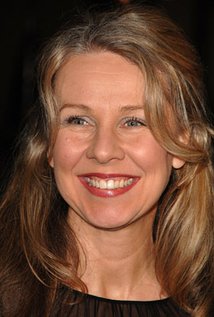
Courtney Hunt is an award winning director, known for her feature film Frozen River starring Melissa Leo where she won Grand Jury Prize at the 2008 Sundance Film Festival and was nominated for an Academy Award for Best Original Screenplay in 2009. A graduate from the Northeastern School of Law, the law school graduate and avid movie goer then turned her attention to filmmaking and screenwriting. Her talent in writing and unique ability to turn words on paper into visual works of art has kept her busy for the next several years writing screenplays for Focus Features and NBC and busy directing such shows as HBO’s In Treatment and Law and Order SVU. With multiple projects such as a period drama set in early 1900’s New York City and a Hillary Clinton miniseries, Hunt will continue to movie audiences through the power of film.
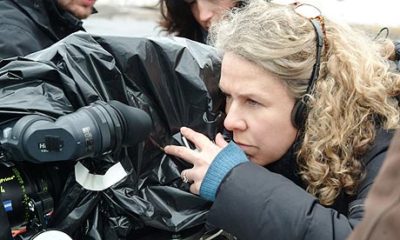
I had the opportunity to interview Oscar nominated director Courtney Hunt during press day for the film. Having flown into Los Angeles to the beautiful setting of SLS Hotel in Beverly Hills, she took time to sit down with me and chat. We talked about how her law background and time with her husband who is a defense attorney drew her to the film, how the film comes from a real life attorney perspective, why Louisiana was the perfect setting for the film, and how the makes movie goers question their own sense of what morality is.
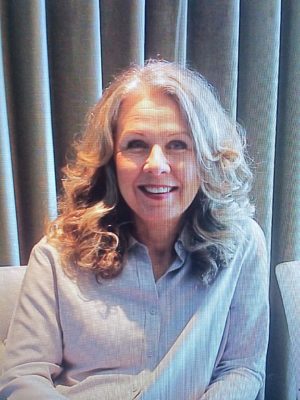
Director Courtney Hunt chats with Eclipse Magazine about The Whole Truth
Hi! How are you doing?
Courtney Hunt: Good thanks!
It’s so exciting to be talking with you Courtney, the director of the film The Whole Truth. And you flew all the way from New York!
Hunt: Yep.
Well, I saw the film, and it’s great. I really love it!
Hunt: Thanks!
How did you get involved in the film?
Hunt: Well, the producers and the writers came to me. I was interested in it. I am a lawyer, and I sat in many trials with my husband who is a defense attorney in murder trials and other criminal trials. I thought it was amazing in how the script has so many twists and turns. It’s final revelation twist—I found completely believable. I couldn’t believe it had the ring of truth. I felt like the situation could happen, and for that reason, I was hooked. I also felt it showed the real stress and anxiety that a lawyer goes through between dealing with their own morality and their own reality. I’ve watched my own husband go through it many times. I’ve felt that feeling sitting with him as Janelle does in the courtroom. To me, it was a very interesting but truthful thriller.
Having been a lawyer and being married to a lawyer, are there actual events, that this is partly based on?
Hunt: At the beginning of the movie, the lawyer comes in and he is basically a wreck. I know my husband… I’ve seen him going to trial that first day and the weight and responsibility for a human being on your shoulders—it’s incredibly nerve wrecking and stressful. That’s one part. And the other part is when you are in the depth of trial, everything that is said in the witness box, having a non-verbal relationship with somebody who is listening to it in the audience, not to mention the jury, including, like the victim’s mother, or the defendant’s mother … I find there is all this non-verbal communication going on in the courtroom that is rarely seen, so we try to show that.
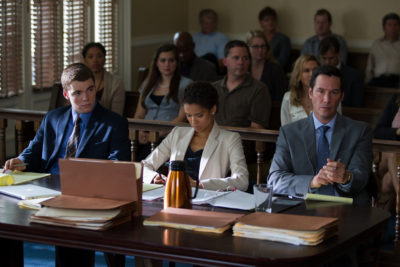
Gabriel Basso, Gugu Mbatha-Raw, & Keanu Reeves in courtroom of The Whole Truth.
In the film, a lot of this is really based from the perspective of the attorney, and not so much from the client or the people that is being defended.
Hunt: Right. It is the attorney’s point of view. I was very happy for the script for that. Ramsey is the main character. It is his story of his experience of this trial.
Speaking of Ramsey, we have an all-star cast. How did you come about deciding who you wanted to cast in all the parts in the film?
Hunt: With Keanu, he came to us after the initial production and that was absolutely amazing. To me, he was dead on for the way a lawyer looks and sounds in a courtroom. I think he did a great job in it. We went to trials to even watch other lawyers. We went to two murder trials to see how they acted and I think he really internalized all that. With Renee, because she is a southern woman, this particular character is a certain kind of southern woman with this vulnerability and the strength. To me, it was very obvious that it should be her from the get go.
Well, the acting was great! This film was shot in Louisiana.
Hunt: Yes.
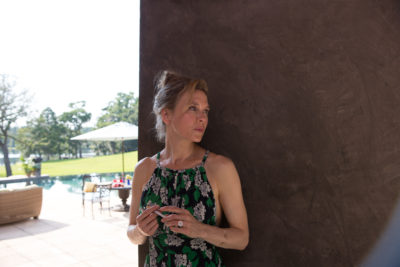
Renee Zellweger as Loretta Lassiter in The Whole Truth.
I know you love shooting on location. How does shooting in Louisiana bring out the elements that you want to bring?
Hunt: Well, I am truly geography based in my writing. I didn’t write this. This gave me a way to envision the film personally. I spent many, many summers and Thanksgivings and Christmases in Louisiana with my aunt, so it was a world I knew. There is a heaviness. There is a parochialness. There’s a small town feel. There’s a cultural feel to that part of the world that I think seeps into the film which does not define it but I think it makes the situation even more believable. A dysfunctional family. The big house. The dream life, and yet this small town, small court where everybody knows everybody.
Now there’s a lot of social issues that is brought up in the film. Was there a specific social issue that you hoping to bring out in the The Whole Truth?
Hunt: I think it’s really an issue of morality to me. This is more of a morality play than anything else. To me, when a lawyer takes on a case, they have to put their morality in their pocket for a time, and they have to represent their client. And they have to assume the client’s mindset. They have to assume the client’s set of facts. To me, that is essentially dropping your own morality, and yet that is how our own court system works. I’m always interested in how that plays. The other interesting issue is that all courtrooms in all trials depend completely, almost completely, on people’s memories. There will still be physical evidence, but mostly it’s how people interpret it. To me, the way memory plays in this movie is so interesting, and I thought it was a really strong point of the script. It was my intention to show that memory is not in the perfect narrative facts, but these little flashes of “Oh yeah, when he jumped in the pool”, and “Oh yeah, when this happened”, and you get little bits and pieces. It may be you’ll remember truthful bits and pieces, then when you get up on the stand, you cast them in a totally different light. To me, that shift in perspective, I find fascinating.
And that shift can actually affect an entire case.
Hunt: Totally. It can completely flip a case.
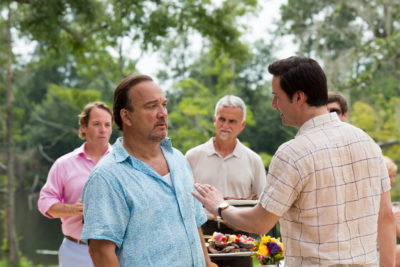
Jim Belushi & Keanu Reeves have a discussion during Lassiter party in The Whole Truth.
So, filmmaking in general. You started from a law background. What was the one thing that made you realize, “Yes, I want to go into filmmaking”?
Hunt: Well, I was brought up seeing movies all the time. We didn’t have a lot of money, but we had enough to go to the movies. Back then it was not so expensive, so yeah, I saw everything as a little girl. I landed in law school as sort of by accident. I just sort of applied to one place and it was kind of a great law school, so I went and finished because it was sort of a way to look at the world, to gather experiences, and to have some sense of how the world really operates. For me, it was an extension of college. I had many jobs while I was in law school. I got to work for a judge. I got to second seat trials. So to me, it was like an education in the world and with no intention of staying there. I went straight to film school afterwards.
Wow!
Hunt: Yes.
Do you have any projects coming up in the pipeline?
Hunt: I do. I have a bunch of projects. All of which I’ve written myself, except for one, and which may go first. There are all kinds of different topics. One is the 1904 period piece. It’s a miniseries about my family in the south. Another one is something that happens in the Adirondacks that’s also a thriller. So I have quite a bit coming up.
That’s so exciting. I can’t wait to see! So do you have any shout outs to the readers of Eclipse Magazine about your film?
Hunt: What I can promise you is that your perspective will be thrown off, that you’ll be on the edge of your seat, that you will endure this roving suspicion about what’s actually happened in this family, and that you will question your own morality at the end.
It’s all about morality. It’s a wonderful movie. Thank you so much Courtney!
Hunt: Thank you Lora.
As I watched this film, I could not help but wonder if Mike Lassiter was telling the truth to get acquitted, or telling a lie to protect his mother. It was clear that Boone led a double life being a “good citizen” while terrorizing his family at home, though to what extent, it would remain hazy until later during the film when you realize the type of person he really was. I have to admit I never saw the twist at the end, but then again, in a court system that is far from perfect where innocent people get placed in prison all the time and guilty people get freed, anything is possible. What is the truth in a courtroom when a judge is swayed by what is in front of him instead of looking at what is behind the testimonies? I’ve always heard the truth will set you free. Does it? In a system that is imperfect, one can only hope that the whole truth comes out. One can hope. And if one does get free, are you truly free at all? Or does memories of the trial stick with you for years to come? It’s a truly compelling story told with incredible actors that will make you, as Courtney Hunt put it, “question your own morality” as to whether or not we actually saw justice done at the end. Could I tell you the ending? Absolutely. Will I tell you the ending? Absolutely not! If you want to see the twists and turns of the story, go see The Whole Truth which is out in theaters today and On Demand now!
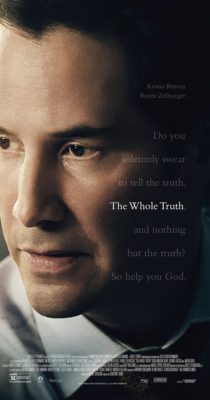
Twitter: @lgpremiere / #TheWholeTruth
Courtesy of Lionsgate